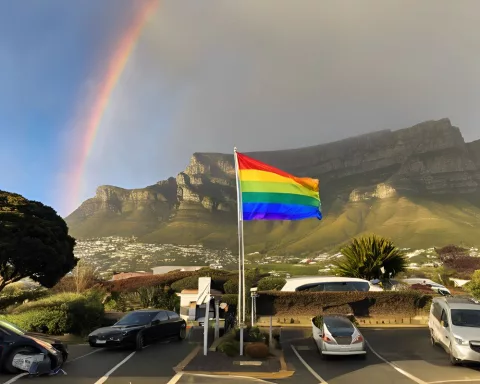The planned auction of Nelson Mandela’s memorabilia was halted by the South African Heritage Resources Agency (SAHRA), which appealed to prevent the sale of around 74 relics, citing their cultural significance. The auction, arranged by Mandela’s eldest daughter and a New York-based auction house, had attracted controversy and criticism from different sectors, including the government. The suspension of the auction allows SAHRA to continue its mission to conserve the nation’s cultural heritage, highlighting the tension between personal ownership and the preservation of national heritage.
Why was the auction of Nelson Mandela’s memorabilia halted?
The South African Heritage Resources Agency (SAHRA) put a stop to the proposed sale of around 74 relics, once the property of the late president, Nelson Mandela. The auction, initially slated for February 22, was arranged by Mandela’s eldest daughter, Dr Makaziwe Mandela, together with Geurnsey’s Auction House, a New York-based establishment. The planned auction had attracted a considerable amount of controversy, with a variety of criticisms coming from different sectors, including the government.
In a series of notable events, the South African Heritage Resources Agency (SAHRA) put a stop to the proposed sale of around 74 relics, once the property of the late president, Nelson Mandela. The auction, initially slated for February 22, was arranged by Mandela’s eldest daughter, Dr Makaziwe Mandela, together with Geurnsey’s Auction House, a New York-based establishment.
However, in an unexpected twist, the auction house issued a suspension notice on their website, followed by a quick removal of any information concerning the auction. This delay is a response to SAHRA’s decision to apply for an appeal to completely prevent the auction.
Auction Suspension Amidst Controversies
The planned auction had attracted a considerable amount of controversy, with a variety of criticisms coming from different sectors, including the government. The government supported SAHRA’s court appeal against the earlier judgement that had given the clearance for the auction. Amidst the uproar, the heritage agency managed to persuade Guernsey and Makaziwe to delay the auction until the ongoing legal procedures were completely resolved.
In a public address, SAHRA’s spokesperson, Yazeed Sadien, expressed the agency’s gratification over the auction house’s decision to postpone the auction. He affirmed that this decision was in alignment with the agency’s dedication to preserving South Africa’s cultural heritage. Furthermore, Sadien expressed his appreciation for recognizing the sensitivity of these significant relics.
The decision to postpone the auction enables SAHRA to continue its mission to conserve the nation’s cultural heritage. This is seen as a responsible and thoughtful approach given the circumstances, and allows for the legal proceedings to reach a final judgement. Sadien highlighted the importance of Guernsey’s Auction House’s collaboration in this matter, as it portrays their respect for the cultural heritage of the nation.
Repeated Suspensions and Auction Details
Interestingly, this is not the first time that the auctioneers have had to put the sale on hold. As stated by Times Live, the original auction, which was scheduled for the January 28, 2022, was also postponed due to a legal dispute involving SAHRA, David Parr (Mandela’s former prison warder), and Makaziwe. Despite SAHRA’s request to halt the sale, the court dismissed their application for an injunction in December, citing lack of sufficient evidence to support the argument that all the items to be auctioned were heritage objects.
The items intended for the auction included iconic pieces such as Mandela’s Madiba shirts, his Ray-Ban sunglasses, a walking cane, sketches he made during his imprisonment, an ID book, and presents from his prominent friends. According to News24, the revenue generated from the auction, which was planned for February 2024, was proposed to fund the building of the Mandela Memorial Garden near Madiba’s burial site in Qunu, Eastern Cape.
Cultural Heritage vs Personal Ownership: The Unresolved Tension
This series of events underscores the deep regard for a nation’s cultural heritage and the lengths to which agencies like SAHRA are prepared to go to protect it. As we await the conclusion of the legal proceedings, the future of Mandela’s artifacts remains uncertain. This situation symbolizes the ongoing tension between personal rights of ownership and national heritage.
Overall, the unfolding event around the halted auction of Nelson Mandela’s artifacts demonstrates how cultural heritage can become a matter of national concern and debate. It also raises questions about the balance between personal ownership and the preservation of national heritage, and how this balance should be maintained in the future.
1. Why was the auction of Nelson Mandela’s memorabilia halted?
The South African Heritage Resources Agency (SAHRA) put a stop to the proposed sale of around 74 relics, citing their cultural significance, which the agency is dedicated to preserving. The auction had attracted controversy and criticism from different sectors, including the government.
2. What is the current status of the auction?
The auction has been postponed until the ongoing legal proceedings are completely resolved. This is not the first time the auction has been suspended; the original auction, scheduled for January 28, 2022, was also postponed due to a legal dispute involving SAHRA, David Parr (Mandela’s former prison warder), and Makaziwe.
3. What items were intended for the auction?
The items intended for the auction included iconic pieces such as Mandela’s Madiba shirts, his Ray-Ban sunglasses, a walking cane, sketches he made during his imprisonment, an ID book, and presents from his prominent friends.
4. What was the revenue generated from the auction planned for?
According to News24, the revenue generated from the auction, which was planned for February 2024, was proposed to fund the building of the Mandela Memorial Garden near Madiba’s burial site in Qunu, Eastern Cape.
5. What does the event around the halted auction signify?
The event signifies the deep regard for a nation’s cultural heritage and highlights the tension between personal rights of ownership and national heritage.
6. What is SAHRA’s mission?
SAHRA is dedicated to conserving South Africa’s cultural heritage and has the responsibility to protect and promote the country’s cultural resources.











